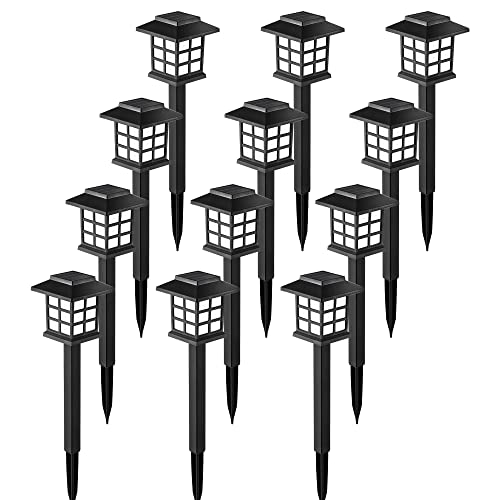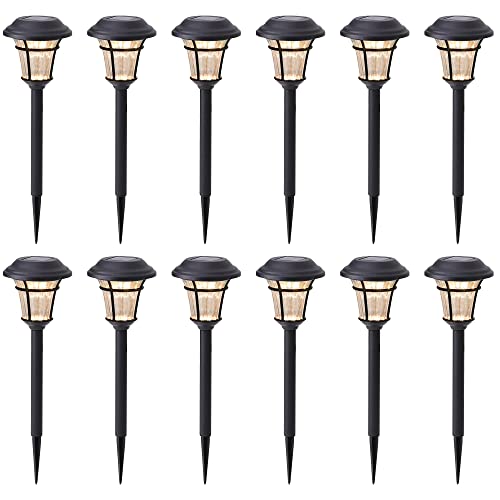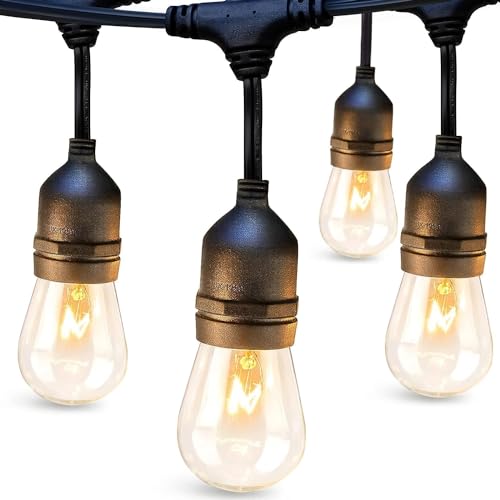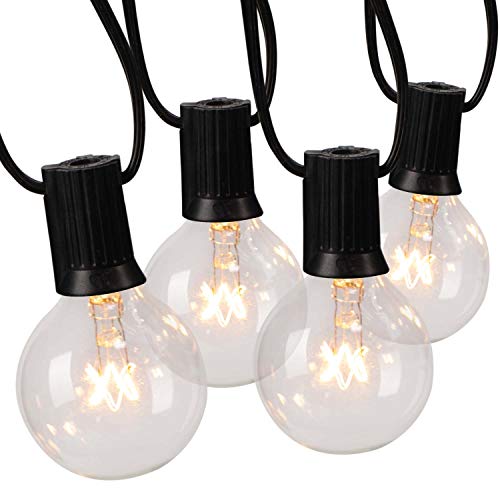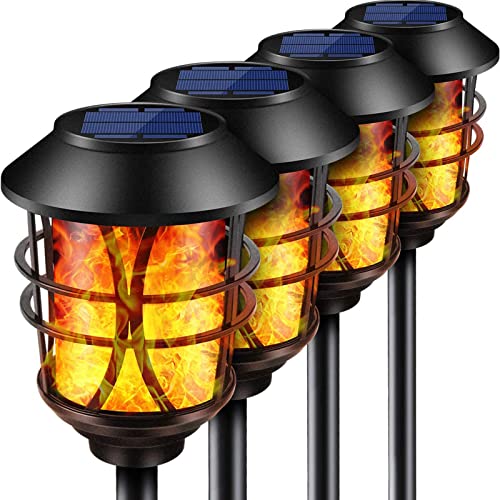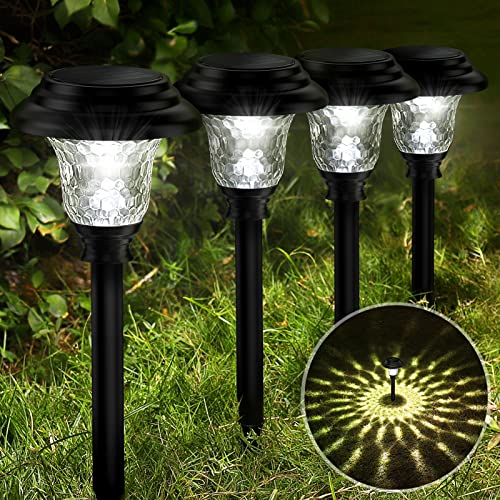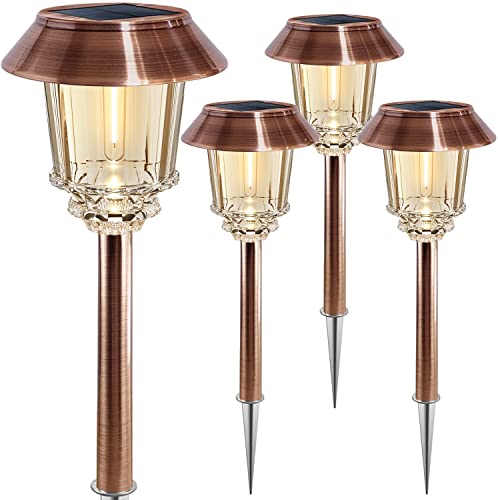Garden lights are more than just decorations; they're your evening's safety net, keeping your yard well-lit and accident-free. Plus, some come with smart sensors that give you a heads-up if someone's sneaking around. With so many types out there, each garden light has one goal: to make your garden look stunning after dark. And hey, you can even personalize many of these lamps with colorful lights to match your vibe. But with all the options out there, picking just one can be tricky. Don't worry, we've got you covered. Here, we've reviewed the best garden lights of 2024 — our favorites are the GIGALUMI Solar Garden Lights. Now, let's find the ideal match for your outdoor space!
Our Top Picks For Garden Lights
Garden Lights: A Buying Guide
While garden lights offer a beautiful touch and come in a plethora of styles, it’s wise to arm yourself with knowledge before making a purchase. After all, it’s far more economical to invest in understanding the product than to buy blindly. To help you navigate the market, here’s what you need to know when shopping for the best garden lights.
What You Should Look for in Garden Lights
Types
When it comes to garden lights, there are various types that you can find. Before buying any garden light, it is better to know the various options that you have. Here are the most common types of lights that you can get for your garden.
- LED garden lights: LED garden lights are highly preferred by people due to their energy-efficient construction. Additionally, these lights are available in various designs like garden spikes, ground lights, etc. They are usually powered by a low-voltage power source and can last for a long time.
- Floodlights: Floodlights are perfect for houses with large gardens and backyards. These lights are known for high coverage and bright lighting, and they are designed to withstand all kinds of climatic conditions. Be it heavy storms or snow, floodlights will still work all the same.
- Wall lights: These lights are perfect for both indoor and outdoor lighting. You can install them in the fence, and it will illuminate the entire garden. The best thing about them, though, is that there are fewer chances of tripping or knocking them down. Plus, some of these lights come with sensors and alarms to notify you about potential intruders.
- Landscape lighting: Also known as in-ground lights, these lamps are designed to illuminate trees, fountains, and other areas of a garden. To install a landscape light, you have to dig up a hole in the garden and then put it there. Compared to other types of garden lights, these give off a more ambient look to the entire yard.
For more on how to install landscape lighting, check out this helpful how-to video by Lowe’s.
- Ceiling lighting: If you have a small garden on your balcony, then a ceiling light would be enough to brighten up the entire area. They come in various designs and do not need much maintenance. The most popular ceiling designs are flush mounts and pendant lights; while flush mounts are directly attached to the ceiling, pendant lights come with a rod or chain for the installation process.
- Post lights: Post lights are also known as path lights and are highly preferred for gardens with walking paths. My favorite thing about these lights is that you can either mount them on low poles to illuminate small areas or increase their coverage by using tall poles.
Power source
Knowing about the power source of a garden light can be a game-changer when buying one. Manufacturers mostly use three types of power sources while constructing a garden light: low voltage, high voltage, and solar energy.
- Lighting systems with low voltage require a supply of 10 to 14 volts to function properly. Low voltage systems are energy-efficient, safe to use, and do not need much time to install. You can also use LED or Halogen bulbs with a low-voltage power supply.
- High-voltage systems require a power supply of 120 volts to operate properly. To install such a lighting system, you need tons of wires and connections, which is time-consuming. Keep in mind that this lighting system will create a hike in your utility bills as they are not energy efficient. In general, this system is ideal for use in hotels and resorts.
- Lighting systems with solar energy as their power supply is highly preferable as they are energy-efficient, affordable, and environment-friendly. Such lighting systems only require solar panels that will absorb the sun’s rays and charge the entire circuit. Once it is completely charged, the bulbs will light up the garden throughout the night.
Motion sensors and timers
Garden lights with motion sensors can notify you about intruders. How? These sensors are designed to monitor movement and switch on the lights when anyone is near the vicinity. By doing so, you’ll be notified if someone is lurking in your garden and get immediate help.
Timers, on the other hand, can help a lot in saving energy on lighting systems as you can program them as per your needs. By setting a timer for your garden lights, you will be able to save a lot of energy since the bulbs will only illuminate at the set time.
Light sensors
Light sensors, commonly referred to as photosensitive sensors, play a pivotal role in automated lighting systems. These devices gauge the outdoor light’s intensity and trigger the circuit upon detecting low levels. Consequently, the bulbs switch on autonomously, casting light across the vicinity. As outdoor illumination intensifies, however, the lights deactivate on their own to conserve energy and remove the need for manual intervention.
Battery life
When selecting garden lights, battery longevity is a key factor; a short run time renders a lighting system rather ineffective. Solar-powered lights typically last 8 to 10 hours per charge, while LED lights may last weeks or even months.
Conclusion
In conclusion, garden lights are an excellent addition to any evening outdoor gathering, offering both aesthetics and practicality in one place. Our selection represents the finest in the market, ensuring that you can enjoy your garden’s beauty safely into the night while deterring unwelcome visitors. Choose the best for your space and make every night in your garden a memorable one.
People Also Asked
What type of material is best for garden lights?
Garden lights made of metal are ideal because they're robust and ensure longevity. While plastic torches exist, their durability falls short.
Should I go for a manual or automatic garden light?
Automatic garden lights are a smart investment, seamlessly managing illumination by switching on and off as needed. This not only conserves energy but also circumvents the common oversight of leaving manual lights on, preventing energy waste.
What are the advantages of solar-powered garden lights?
Solar-powered torches are an efficient way to save energy. And because they don't rely on electricity, they're ideal for areas with frequent power outages.
Can solar-powered garden lights charge on cloudy days?
Yes, solar garden lights can charge on cloudy days, although they may not charge as efficiently as on sunny days.
Do garden lights attract insects?
There is a possibility your garden lights will attract insects. LED garden lights are less likely compared to traditional incandescent bulbs, however, because they emit little to no UV light.




